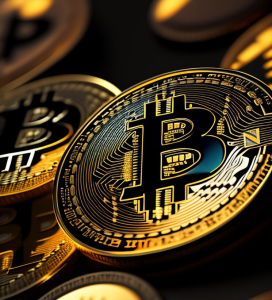Customs law, import and export formalities; if you import or export goods to or from the European Union, you will be forced to deal with them. Depending on origin, classification and value, import, anti-dumping and anti-subsidy duties, and import VAT will be among the charges payable upon declaration. If Customs & Excise take the view that a declaration was incorrect, additional duties and taxes may be retrospectively levied, often confronting businesses or even entire industry sectors with very substantial costs, which are usually neither budgeted nor recoverable. If confronted by reassessments from Customs & Excise, businesses will need specialized help, yet lawyers specialized in fending off customs claims are scarce.
Rotterdam based law firm Kneppelhout & Korthals is one of the very few to deal with all aspects of customs law, including issues where customs authorities have been attributed enforcement tasks such as in the areas of food and product safety, seizure of counterfeit products, export controls, sanctions and the environment. Jikke Biermasz and Marijn van Tuijl, Partners of Kneppelhout & Korthals here share their views on the past, the present and the future of customs law.
What are the current developments?
The outlook of the international trade landscape is set to change profoundly in the next few years. CETA negotiations have reached, and TTIP negotiations may reach, their conclusion shortly. The presently unknown consequences of Brexit are also a cause for concern. Against this background the new Union Customs Code just entered into force. Although there are no fundamental changes, a number of issues will require businesses to carefully review certain consequences, for example with regard to the abandoned ‘first sale for export’ principle, the new provisions on Binding Tariff Information applications, and on AEO licenses. Furthermore IT will play an ever more important role in communications with Customs & Excise. Modernization of the supply chain and communication with customs bring along new challenges and complex legal issues too.
Can you mention some highlights of the past year?
In the past year we (again) saw much activity concerning anti-dumping and anti-subsidy measures on solar modules and cells of Chinese origin. While the regulations on this topic were already adopted in 2013, in recent months we have seen a significant number of substantial customs claims concerning alleged circumvention via Taiwan and Malaysia and evasion of the MIP Undertaking by Chinese exporters. The solar panel file is far from closed. It appears that the European Commission, OLAF and the national authorities should be able to detect shifts in the flows of goods from China to other countries, but in reality these issues are raised by Customs & Excise several months or even years after the events took place, sometimes with hefty financial impact for customs agents and other logistic service providers who did not adequately protect their business against the risks connected to imports of solar modules.
Importers and their customs agents also have many questions on the extension of the duties on Chinese panels via Taiwan and Malaysia since 2016. Panels consigned from these countries have been registered since the end of May 2015. Some companies are exempt, but there are questions about the requirements that have to be met. The scale of the solar panel case is unprecedented and as most import declarations are made in the Netherlands, we are in the centre of the storm.
On fasteners: as a result of the WTO-ruling of 26th February 2016, the Commission repealed the anti-dumping duty imposed on certain iron or steel fasteners from China since 2009 and extended to imports of fasteners consigned from Malaysia. Apparently, the Commission is of the opinion that the infringements of the WTO Antidumping Agreement is found by the Dispute Settlement Body are of such severe nature, that it is not possible to nail shut the measure again, like the Commission still did in 2012 when China also successfully filed a complaint. Therefore, the Commission decided to withdraw the regulation in full, however without retroactive effect. We anticipate that many businesses will want to take steps to claim reimbursement of the duties they paid. At some point the European Court of Justice will be asked preliminary questions about the validity of the fasteners measures in view of the rules laid down in the Basic regulations anti-dumping duties. If the ECJ would rule that the measures have been invalid from the beginning that means there is retrospective effect. A word of caution though: claimants must prevent expiry of the statutory period of limitation by filing formal request for repayment or reimbursement immediately; this cannot wait.
We are furthermore seeing an ever-increasing awareness of export controls and sanctions legislation. US companies have been mostly very professional in dealing with these issues for years. It now seems that Europe is finally catching up, which is for the better, as the legal consequences of export violation are severe; it is a crime, penalties can be levied, arrests are possible, and there are personal consequences for people that intentionally violate rules (get fired, imprisonment etc.). Apart from that there is of course a huge risk of commercial and reputational damage. Companies can lose contracts or be publicly named and shamed.
How do you add value to your clients’ businesses?
We believe that a successful approach to customs matters requires active knowledge of all other aspects concerning the international trade of goods. Our approach is unique in the Netherlands. Our customs practice is embedded in a broad-based trade, regulatory, transport and insurance practice. Our clients will be assured of top notch legal assistance, be it in a customs case, when food safety authorities seize goods, or when any mishaps occur in the logistics chain.
Do you have a mantra or motto you live by when it comes to helping your clients?
Lawyers still have certain legal privileges, but essentially they are service providers. After 35 years of providing legal services, creating added value for our clients is still our key driver. As a full service firm Kneppelhout & Korthals is committed to take client service to a new level. An independent agency monitors our customer satisfaction level on a continuous basis. Currently, we score an average of 8.8 out of 10.
What top 3 qualities make a thought leader?
- Authenticity;
- Know how and know why;
- Unconditional and absolute sector focus.
What’s most important to you and the firm?
Every law firm’s existence entirely depends on being and staying of relevance and of value to its clients. As a full service firm we distinguish ourselves from other firms by offering services and specialisms which bigger firms do not, or no longer, offer.




















